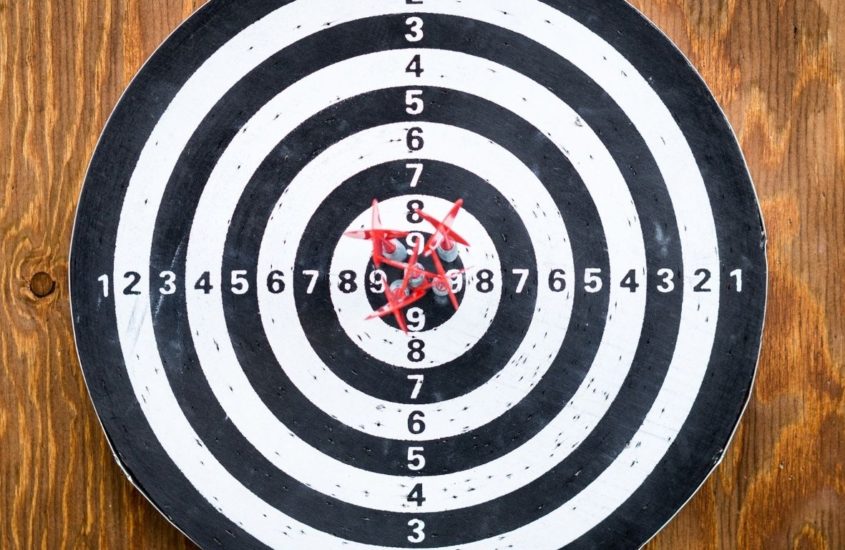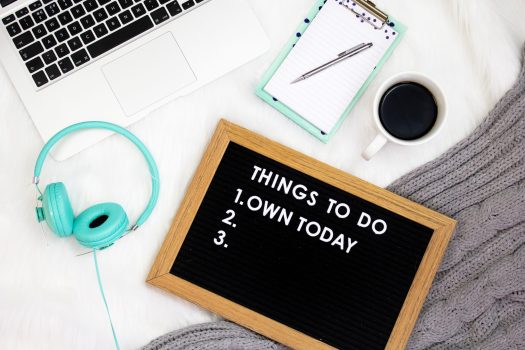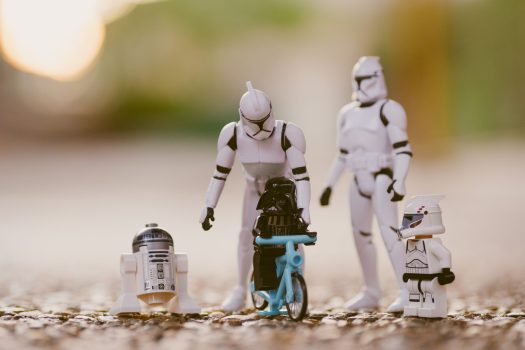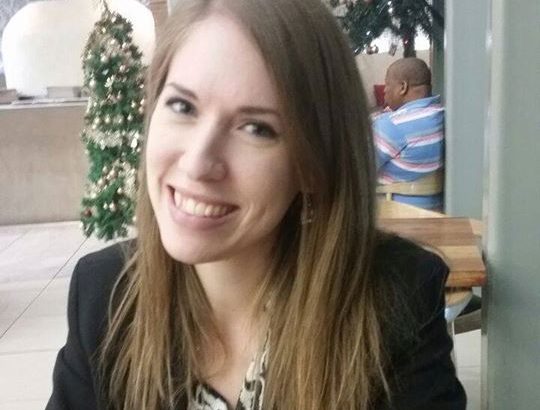Reblog feature: Be a target, not a victim

This week I read this post, ‘Be a target, not a victim’ by S on her blog Chasing Happy and I just loved it. It’s about how to change your attitude from victimhood to being empowered. But I won’t spoil everything. I’ve copied her post here, but you can also read it on her blog here.
Enjoy.
Be a Target, Not a Victim
I had an unexpected moment of weakness today. I was going about my day, watching YouTube videos about getting rust stains off stainless steel pans (adulthood is so exciting), when I was struck with this sudden urge to FB stalk my ex. In the two months since things ended between us, I haven’t once been tempted to poke around his social media, but I just felt this random longing to see what was going on in his life. Luckily, he’s never been the most active person online, so there wasn’t anything new for me to obsess over or pick apart, but just seeing him again stirred a distant sadness inside me.
I had been doing so well with not thinking about him. There had been weeks where I was so occupied with other stuff in my life that he barely registered in my mind. But somehow, I got so over my hurt and sadness, that I actually circled back to only remembering the good times with him and then missing him again. Thanks for nothing, brain!
When I saw his pictures today, I admit I got little misty-eyed. I started to feel sorry for myself, and then I had a realization that I’ve kind of known all along. I like feeling sorry for myself.
It’s not something I’m proud of, but it’s something I have to acknowledge and accept. Letting myself wallow in all the bad things that happen to me is a guilty pleasure, almost an addiction. On my first date with my ex, I remember telling him about the person I dated before him even though that’s a big no-no. I told him about how the way he ended things hurt me and how I didn’t want to go through that again. I justified my first date faux pas by looking at it as a way of protecting myself.
Then I kept bringing him up even after the first date. I would tell him how the other guy was never very affectionate or how he would be cold when I tried to have important talks with him, deliberately leaving out any mistakes I made in these situations. I will admit, I wanted him to feel bad for me, I wanted him to acknowledge the hurt even though he wasn’t the one who caused it. I wanted to believe I wasn’t responsible for any of the things that happened to me, that I was just a victim of circumstances.
But I wasn’t a victim at all. I’d had plenty of autonomy the whole time. I could have chosen to walk away from the situation sooner rather than continue to invest my time and emotions and hope things would change. I could have dated other people. I could have told him exactly what I wanted from the get-go and asked him what he wanted to make sure we were on the same page.
In his book about modern stoicism, William B. Irvine talks about the concept of being a target vs a victim. Everyone will experience bad circumstances outside of their control at some point in their lives. At that point, they can choose to be a victim and wallow, asking themself “why me?” They can continue to feel powerless and move through life believing their happiness is out of control. OR they can be a target, and accept that this thing happened to them and realize that while they don’t have power over the circumstance, they have power over their thoughts and actions. Targets tend to bounce back from hardships faster, because they know they can play an active role in shaping their happiness.
In my life, the area where I tend to wallow the most is dating. It’s easier to feel sorry for myself when I can’t find someone to connect with rather than take responsibility. Obviously I can’t control anyone’s feelings towards me, but I can control my thoughts and actions. I can put myself out there more, I can work up the courage to strike up a conversation with a cute guy or join activities where I’m more likely to meet people. I can choose to love myself and accept that not everyone is going to be into me and their opinions shouldn’t dictate my self-worth. Putting the burden of responsibility back on myself means I only have myself to blame, which is a scary thing, but it also means I have all the power.
When you’ve spent as much time throwing pity parties for yourself as I have, it can be a challenge to make this shift in your mind. I still struggle with it, like I did today, but I also catch myself a lot faster. Instead of breaking out into a full on ugly cry into my Ben & Jerry’s, I just made myself lunch, put on some good TV, and moved on. Because here’s the thing about feeling sorry for yourself: It’s completely pointless.
It accomplishes nothing and only makes you feel worse about your situation. So the next time you feel inclined to feel sorry for yourself, do literally anything else instead. Dance around to your favorite music, treat yourself to something sweet, or throw on that outfit that makes you feel like an absolute goddess. And remind yourself: you’re the only person who gets to control your happiness. Don’t give that power to anyone else.
Lastly
What do you think about this idea? Have you ever used it in your life? Let me know in the comments.
Meh.
Michelle
P.S. If you’d like to contact me, feel free to comment below, send an email to thatmichelleperson@gmail.com, or follow me on Twitter @M_ClutterBox.










S
Thanks for sharing!
That Michelle Person
Thanks for writing such great content 🙂
TheQuietGirl (Anissa)
This was an interesting read. I actually agree with the idea of being a target and not a victim. It’s easy to feel bad about yourself when something happens and wallow in it. It’s not the simplest thing to be like, ” it happened and I had no control over it, so let me move on”. I think when you are emotional invested in something like a relationship, it is harder to just let go, even when you know it’s not going well. I like how honest she was with her writing, I will be checking out her blog. It was a great post! 😊
That Michelle Person
I completely agree, what a great post 🙂
Thanks for reading!
Lynn Mejia
I absolutely agree! I grew up in a household where it was tough love so I’ve never really felt sorry for myself. I had the shortest time to be upset then I’d have to move on. I’m thankful that my father raised me like this but it also took me a long time to allow myself to process feelings and be more forgiving to some of my hard decisions I’ve made in life. I think it’s healthy to have an in-between. I’ve been working on establishing healthy boundaries for myself for about 2 years now and I’ve been doing great! Thanks for sharing x
http://www.lynnmumbingmejia.com
That Michelle Person
I think my parents were way too soft on me, but I can always change (luckily).
Thanks for reading 🙂
That Michelle Person
I think my parents were too soft on me, but luckily I can always change 🙂
Thanks for reading!